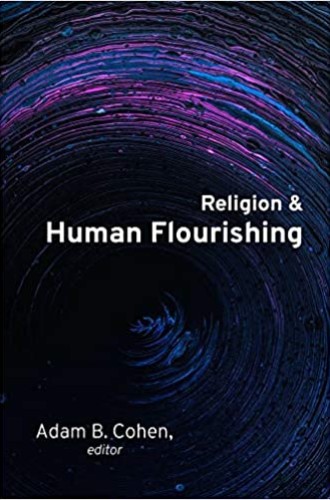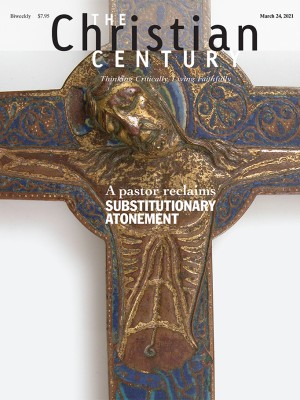More than a dozen recently published books have “flourishing” in the title, and more are being published this year. What makes Religion and Human Flourishing different?
Adam B. Cohen gets right to the point in his introduction. “We no longer take it for granted that religion can help us flourish, or can tell us what it means to flourish,” he writes. “This volume undertakes to determine the quality of evidence for and against claims that religion contributes to human flourishing.” In other words, it attempts to apply science and data to the rather amorphous but compelling questions that have driven the spate of publications: What is human flourishing, how is it created, and what role (if any) does religion play?
The book emerged from a 2018 conference hosted by Harvard University and sponsored by the Templeton Foundation as part of the Humble Approach Initiative, which brought together scholars of religion across various disciplines from major US universities and British and Canadian institutions. The text is divided into three parts, roughly according to discipline and approach. Many of the essays concede there are gaps in our knowledge in the spheres they address and point to the kinds of theoretical and empirical research initiatives still needed to provide definitive answers to important questions. In line with the data-driven approach, each of the 14 chapters in the slim volume ends with a list of references.
Read our latest issue or browse back issues.
The first several chapters look at foundational theological and philosophical questions. Miroslav Volf, Matthew Croasmun, and Ryan McAnnally-Linz, who have taught together in the Life Worth Living project at Yale, sketch out a way to define human flourishing. While they acknowledge that there is no objective measurement for flourishing, they suggest three pillars to define a flourishing life: agency, meaning a life that is led well; positive circumstances, or the sense that life is going well; and emotions that enable a person to feel their life is right. In another notable chapter in this section of the book, Roman Catholic theologian Celia Deane-Drummond writes about the need for a shift toward looking at how religion influences the common good, which she defines as “the good for all and the good for each.”
The middle section of the book introduces perspectives from a variety of disciplines that rely on empirical methods, including anthropology, biostatistics, evolutionary biology, and psychology. Harvey Whitehouse, an anthropologist who studies social cohesion at the University of Oxford, argues that religious rituals contributed to the creation of social complexity in early civilizations. Dominic Johnson, who teaches international relations at Oxford, writes that while the development of religious beliefs and behaviors certainly provide some material benefits from an evolutionary perspective, the conundrum is they are also costly to the individual. Other chapters in this section look at recent data to show how religion helps us trust one another and contributes to prosociality.
The book’s final section offers analysis and interpretation of a wide-ranging set of case studies. Baylor University professor Byron Johnson shows that offender-led religious movements in prisons can lead to increased well-being for those who participate. In a chapter called “Smart and Spiritual: The Coevolution of Religion and Rationality,” economics professor Laurence Iannaccone writes about the value of openness to sacred stories and the concomitant ability to be fascinated, entertained, and persuaded—which enables high levels of economic exchange.
The majority of the book’s chapters are Western and Christian centric, reflecting the locus of most of the research on religion and human flourishing. One exception is the chapter by Cambridge University economist Sriya Iyer, which examines the ways religious organizations in India alter their religious and nonreligious services in response to competition for adherents and in response to inequality.
Social psychologist David Myers, who teaches at Hope College, uses a wide-angle approach, engaging with multiple large-scale studies. Comparing religious and irreligious individuals, Myers shows that those who report higher levels of religious engagement also claim greater happiness. He discusses a long-term German study that demonstrated that people who became more religious as they aged “gained in life satisfaction, while those whose religiosity waned became less satisfied.”
Not all of the studies presented in this chapter find a positive correlation between religion and human flourishing. Myers writes about the paradox that religious individuals living in less religious societies report higher levels of satisfaction than religious individuals living in highly religious societies. “Despite religion’s individual-level associations with the good life, at the aggregate level it was associated with the bad life,” he concludes. In a punny understatement that could just as easily sum up the whole book, Myers concludes: “Religion has been a mixed blessing.”
Religion and Human Flourishing has value not only for academics but for anyone who is interested in recent research on the role religion plays in society and in the lives of individuals. At a time when American politics drip with bombastic religious language and policies are driven by religious justification, it is reassuring to know that serious, scientific efforts are under way to understand how religion can lead to human flourishing.






